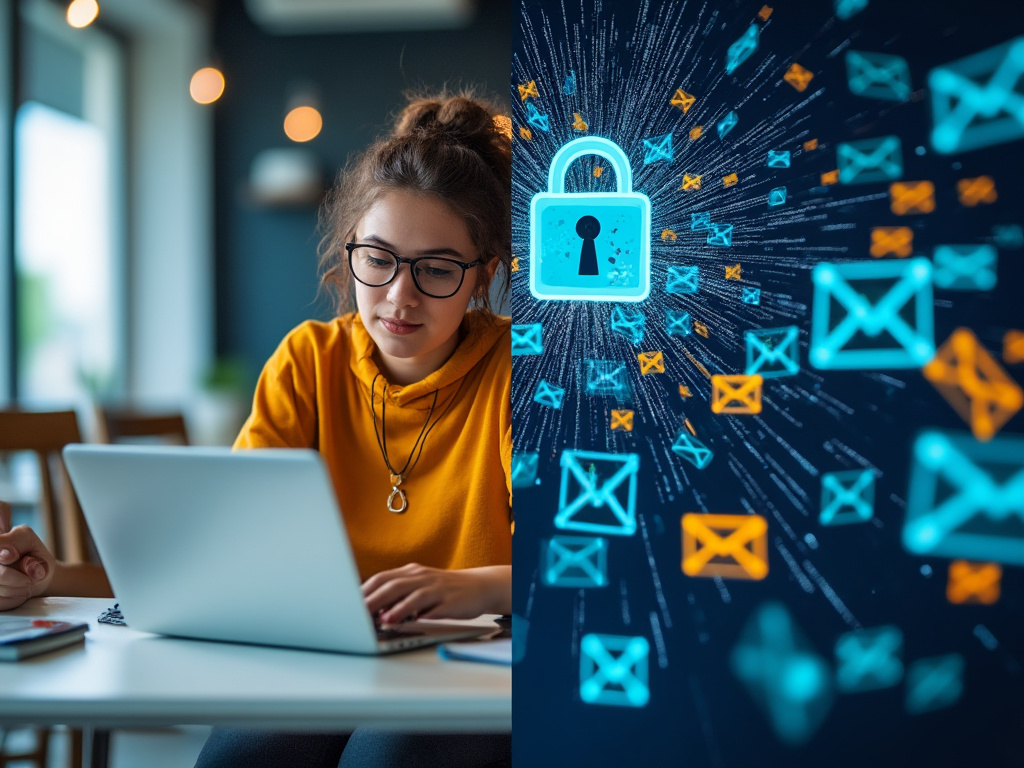Digital Citizen Corner
A Letter to My Fellow Student

Dear Fellow Student,
The glow of my laptop screen lights up the room as I sit surrounded by textbooks and notes. It’s late, but I’m not just thinking about assignments or deadlines tonight. Instead, I’m reflecting on the extraordinary tool we hold in our hands—the internet.
It’s our gateway to endless learning, social connections, and opportunities. But like any powerful tool, it must be used with care. My journey through the digital world has been full of discoveries, mistakes, and lessons. Let me share a story with you that I hope will help you navigate this vast digital universe more wisely.
It all began with an email that seemed urgent: “Update Your University Account Immediately.” The logo looked authentic, and the message warned that my account would be locked if I didn’t act fast. Panicked, I clicked the link, entered my details, and submitted them without a second thought.
What I didn’t realise was that I had just fallen victim to a phishing scam. Hours later, I began receiving alerts: “Unrecognised login attempt.” My stomach dropped as I realised someone was trying to access my accounts. It was as if I had left the door to my online life wide open.
The challenges didn’t stop there. While researching a paper, I came across an article that seemed perfect. The website appeared professional, and the statistics aligned with my argument. I eagerly included it in my essay, only to have my professor point out that the information was completely false. My grade suffered, and I learned a harsh lesson about the dangers of misinformation.
Then there was my social media experience. Like many students, I shared snapshots of my life: a location here, an opinion there. But one day, a stranger’s comment reminded me of the risks of oversharing. I realised I was giving away too much details that could be misused or misunderstood.
From these experiences, I’ve learned that while the internet offers incredible possibilities, it also demands responsibility. Here are the lessons I’ve taken to heart:
1. Protect yourself with cybersecurity.
Treat every email, link, and pop-up with caution. Verify senders, avoid sharing personal information unnecessarily, and always enable two-factor authentication. Think of it as locking the doors to your digital house.
2. Embrace digital literacy.
Not everything online is true, no matter how convincing it looks. Cross-check facts, rely on trusted sources like academic journals, and question sensational claims. It’s better to be skeptical than misled.
3. Practice online ethics.
Every post creates a digital footprint. Before you share, ask yourself: Will this represent me well in the future? Respect others’ privacy, and strive to make your online interactions positive and meaningful.
The internet is like a vast ocean—teeming with opportunities but also hazards. As students, we have the power to explore it wisely. We can protect ourselves, seek the truth, and build a digital presence we can be proud of.
So, my dear fellow student, as you navigate this digital world, stay curious, stay cautious, and remember that the internet is what we make of it. Together, let’s use it to learn, grow, and connect.
Yours in learning,
Bryan Kaye Senfuma
“Advocating for Digital Rights: Empowering Voices for Human Rights.”
This article was written by Bryan Kaye Senfuma, Digital Rights Advocate, Digital Security Subject Matter Expert, Photographer, Writer and Community Advocate. You can email Bryan at: bryantravolla@gmail.com



